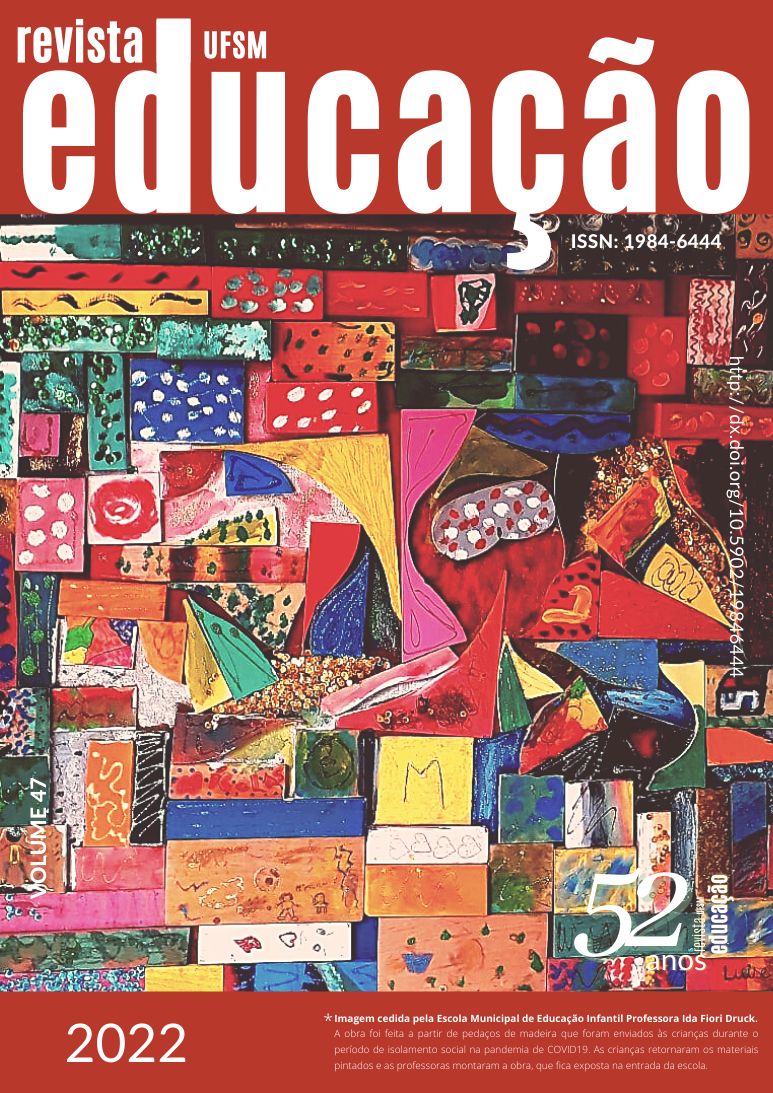Making visible the invisible through the literary discourse: the example of El espejo y la ventana (1967)
DOI:
https://doi.org/10.5902/1984644468084Keywords:
Ecuador, Afro-ecuadorian, Literature, Identitiy, Miscegenation, Adalberto OrtizAbstract
For academia and critics, Adalberto Ortiz (1914-2003) contributed to “make the invisible visible”, i.e. to make visible the Afro component in Ecuadorian society, which, historically, in the process of building a national imaginary, have been hidden by the indigenous component, above all because during the 20th century when the indigenous movement and the so-called ideology of mestizaje cultural (cultural cross-breeding) were imposed. However, the novel El espejo y la ventana, written between 1954 and 1956 and published in 1967, differs from the novel to which Adalberto Ortiz owed his fame as a Negro writer, Juyungo (1942). Indeed, far from narrating the virile struggle of a black protagonist proud of his African background, El espejo y la ventana relate the story of a young mulato, Mauro, who seeks anguishedly his identity, described as a series of failures. He finally discovers that he is nothing more than a "tentenelaire". This paper will analyze how the narrative creates and unfolds the figure of the “tentenelaire”. He is neither black nor white -away from the Afro-Ecuadorian cultural universe, with which he cannot identify- and despised by an elite that defines itself by its white component. He never manages to take root and remains in suspense, "in the air". It will be observed how and to what extent the figure of the “tentenelaire” allows the author to explore the “cross-breeding” from an Afro-descendant perspective, seeking to give this part of a population a greater visibility, through the literary and linguistic domains.
References
AMORIM, Marilia. Vozes e silêncio no texto de pesquisa en Ciências Humanas. Cadernos de Pesquisa, nº 116, p. 7-19, julio 2002.
BHABHA, Homi. Les lieux de la culture. Paris: Payot, 2007.
BELLINI, Giuseppe. La pluma mensajera: ensayos de literatura latinoamericana, vol. 3, Cruz del sur. Oedipus, 2002.
BOURDIEU, Pierre. La domination masculine. Paris : Seuil, 1998.
BOURDIEU, Pierre. La distinction. Critique sociale du jugement. Paris : Éditions de Minuit, 1979.
CORRALES PASCUAL, Manuel. Jorge Icaza: frontera del relato indigenista. Quito: Centro de Publicaciones de la Pontificia Universidad Católica del Ecuador, 1974.
ECUADOR. Ministerio de Educación. Lengua y literatura. 2do curso. Bachillerato General Unificado. Texto para el estudiante. Barcelona: Editorial Don Bosco, 2016.
FERNANDEZ RASINES, Paloma. Afrodescendencia en el Ecuador. Raza y género desde los tiempos de la colonia. Quito: Ediciones Abya-Yala, 2001.
HANDELSMAN, Michael. Lo Afro y la plurinacionalidad. El caso ecuatoriano visto desde su literatura. Quito: Abya-Yala, 2011.
LORENTE MEDINA, Antonio. La narrativa menor de Icaza. Valladolid: Universidad de Valladolid, 1980.
LIPSCHUTZ, Alejandro. Indoamericanismo y el problema racial en las Américas. Santiago: Nascimiento, 1944.
MACIAS BARRES, David. Patrimonio cultural y lingüístico: el montubio y el amorfino. HISAL-Histoire(s) de l´Amérique latine, nº 10, 2014. Disponible en: https://hisal.org/revue/article/view/Macias2014/211. Consultado el: 3 de agosto de 2021.
MENARD, Béatrice. Masques équatoriens: la quête de l’identité métisse dans El chulla Romero y Flores de Jorge Icaza (1958)”. HISAL-Histoire(s) de l´Amérique latine, n°4, 2010. Disponible en: https://www.hisal.org/revue/article/view/Menard2010-1/92. Consultado el: 3 de agosto de 2021.
MIRANDA ROBLES, Franklin. Adalberto Ortiz y Nelson Estupiñán Bass. Hacia una narrativa afroecuatoriana [Tesis de grado]. Santiago: Universidad de Chile, 2004.
ORTIZ, Adalberto. El espejo y la ventana. Quito: Libresa, 1991.
Pronombres personales átonos. In: Diccionario Panhispánico de Dudas. Madrid: Santillana, 2005, en línea. Disponible en: https://www.rae.es/dpd/pronombres%20personales%20%C3%A1tonos. Consultado el: 6 de agosto del 2021.
QUIJANO, Aníbal. Colonialidad del poder, eurocentrismo y América Latina. In: Edgardo LANDER (ed.), La colonialidad del saber: eurocentrismo y ciencias sociales. Perspectivas Latinoamericanas. Buenos Aires: CLACSO, 2000, p. 201-242.
RICHARD, Renaud. Juyungo d´Adalberto Ortiz, ou de la haine raciale à la lutte contre l’injustice. Bulletin hispanique, tome 72, n° 1-2, 1970.
SINARDET, Emmanuelle. Violences sexuelles et viols dans Cholos (1937) de Jorge Icaza: une écriture de la dénonciation. In: Mariannick Guennec (ed.), Entre jouissance et tabous : les représentations des relations amoureuses et des sexualités dans les Amériques, Rennes: PUR, Collection “Des Amériques”, 2015, p. 99-112.
SINARDET, Emmanuelle. Rêves et cauchemars dans Cholos (1937) de Jorge Icaza : la révélation d’une réconciliation possible. Amadeo López, Béatrice Ménard (ed.), Rêves et cauchemars dans la littérature de langue espagnole. Travaux et recherches N°8, Nanterre: Presses Universitaires de Paris Ouest, 2012, p. 267-277.
WILKINS, Heanon M. La maternidad en las novelas de Adalberto Ortiz. In: Actas del XII Congreso de la AIH, 1995. Centro Virtual Cervantes (CVC) del Instituto Cervantes, Madrid. Disponible en: https://cvc.cervantes.es/literatura/aih/pdf/12/aih_12_7_044.pdf. Consultado el: 3 de agosto del 2021.
Published
How to Cite
Issue
Section
License
Copyright (c) 2022 Educação (UFSM)

This work is licensed under a Creative Commons Attribution-NonCommercial 4.0 International License.
Declaration of originality
We declare that all articles present in the journal Educação (UFSM) are originals and were not submitted for publishing on any other publication, as a whole or a fraction. We also declare that, after being published by Educação (UFSM), a paper will not be submitted to another journal within two years. After this time, our journal transfers the publishing rights to the authors, with a permit granted by the Editorial Council.
We also acknowledge that the originals’ submission to Educação (UFSM) implies on a transference of copyright for physical and digital publishing to the journal. In case of noncompliance, the violator will receive sanctions and penalties predicted by the Brazilian Copyright Protection Law (n. 9610, dated 19/02/98).
Attribution 4.0 International (CC BY 4.0)
This license lets others remix, transform, and build upon the material for any purpose, even commercially, and copy and redistribute the material in any medium or format.

This work is licensed under a Creative Commons Attribution 4.0 International (CC BY 4.0)






